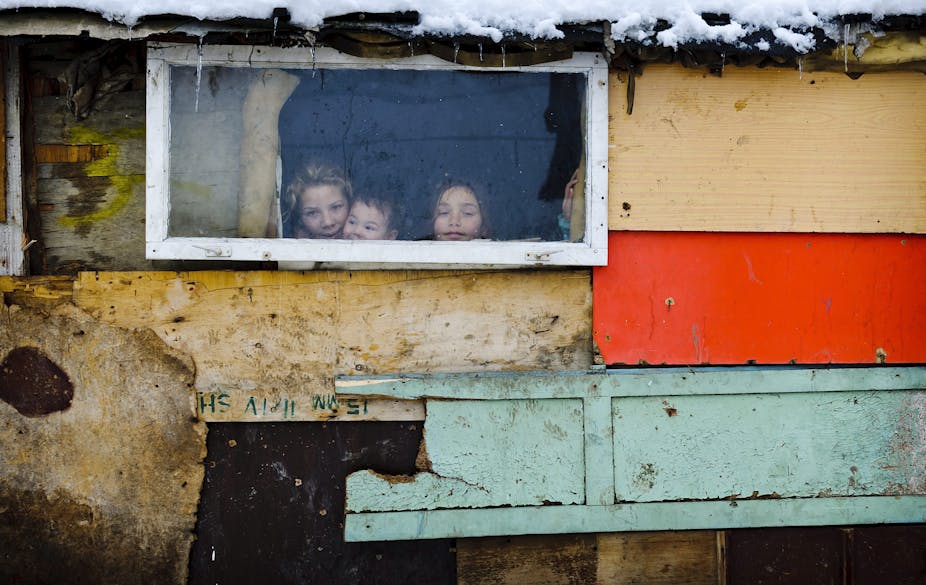Roma children form Europe’s largest ethnic minority. Despite being protected under equality and human rights legalisation they continue to experience extreme prejudice and social exclusion, particularly when it comes to education.
In a recent move to protect the basic human rights of Roma people, the European Commission initiated infringement proceedings against the Czech Republic. Citing systematic discrimination in the provision of education to Roma children, the Commission is sending a warning to all member states that the oppression of Roma people will not be tolerated.
The segregation of Roma
The Commission’s move follows an earlier ruling in 2007 where the European Court of Human Rights found that segregation of Roma children into “special schools” amounted to discrimination.
The concerns now being investigated relate to new allegations that Roma children living in the Czech Republic are still being segregated into Roma-only schools or special schools and that they are getting low-quality education.
The Czech case highlights the appalling treatment of Roma throughout Europe. Despite further rulings by the European Court of Human Rights against countries such as Hungary, member states persistently fail to uphold EU treaties and protect Roma children from segregation and discrimination.
Europe-wide problem
In spite of efforts to improve the social and economic integration of Roma children living in the EU, many still face deep poverty, profound social exclusion and marginalisation. In addition to limited access to quality education, they often live in sub-standard housing conditions and experience poor health and reduced life expectancy.
But educational segregation of Roma children is not limited to the Czech Republic. According to The Roma Education Fund, 40% of Roma children living in Slovakia are also being sent to segregated schools.
The Centre for Civil and Human Rights found that between 65-80% of Slovakian children in schools designated for children with learning disabilities are Roma. Given the assumption that the Roma community are estimated to constitute around 8% of the total Slovakian population, the clear over-representation demonstrates the size of the challenge that the European Committee face.
In 2011, the Fundamental Rights Agency published the results of a study which collected the views of more than 80,000 Roma and their non-Roma neighbours across 11 EU member states. The report indicated that much still needs to be done to protect their basic human rights.
It found that 20% of Roma aged 16 and above cannot read and write, in contrast to less than 1.5% of their non-Roma neighbours. Half of Roma children attend pre-school or nursery, compared to around three quarters of their non-Roma neighbours.
In some countries such as Bulgaria, Greece and Romania, up to 35% of Roma children aged seven to 15 are not attending compulsory school, while 64% of young Roma do not complete any form of upper-secondary general or vocational education, compared to around 15% of their non-Roma neighbours.
Limited response
In 2011, the Commission committed to realising social justice for Roma children and published an EU Framework for national Roma integration. This established key goals which require member states to pay specific attention to education.
Yet the ongoing proceedings against the Czech Republic have highlighted the apparent inability of the Commission to ensure that member states plan for the needs of Roma children. Their continuing educational struggle sticks a blade through the heart of the “European values” which the Commission has sworn to uphold. Rather than being protected from racism and discrimination, Roma children remain victims of marginalisation and oppression.
Discrimination toward Roma children throughout Europe, and indeed the world, dictates the need for urgent and collective action. Unless the rights of Roma children are protected, their opportunity to experience any type of social justice will continue to be denied.
Lack of political will
It is clear from existing examples of good practice published by UNICEF that Roma children can be effectively included in educational policy and systems. This has begun to happen in varying degrees in Bulgaria, Hungary, Macedonia, Romania and Serbia. But in the majority of member states, real change cannot happen without genuine political will.
Where Roma children continue to experience educational segregation, consideration must be given to whether the Commission is able to unite the EU to stand against racism. But the pernicious nature of oppression against Roma people is ingrained within the fabric of European history. It has been established far longer than the EU itself.
As the rise of extreme right-wing organisations in Europe has led to an increase in the targeting and terrorising of Roma children, it is clear that the Commission can only uphold European treaties if member states and political parties value and respect its authority.
In the face of such social injustice, it is difficult to see how the Commission can ever hope to defend the basic human rights of Roma children. Its power to warn member states that the segregation of Roma children in education will not be tolerated will remain ineffective if that warning can be ignored and subverted through domestic populism.

